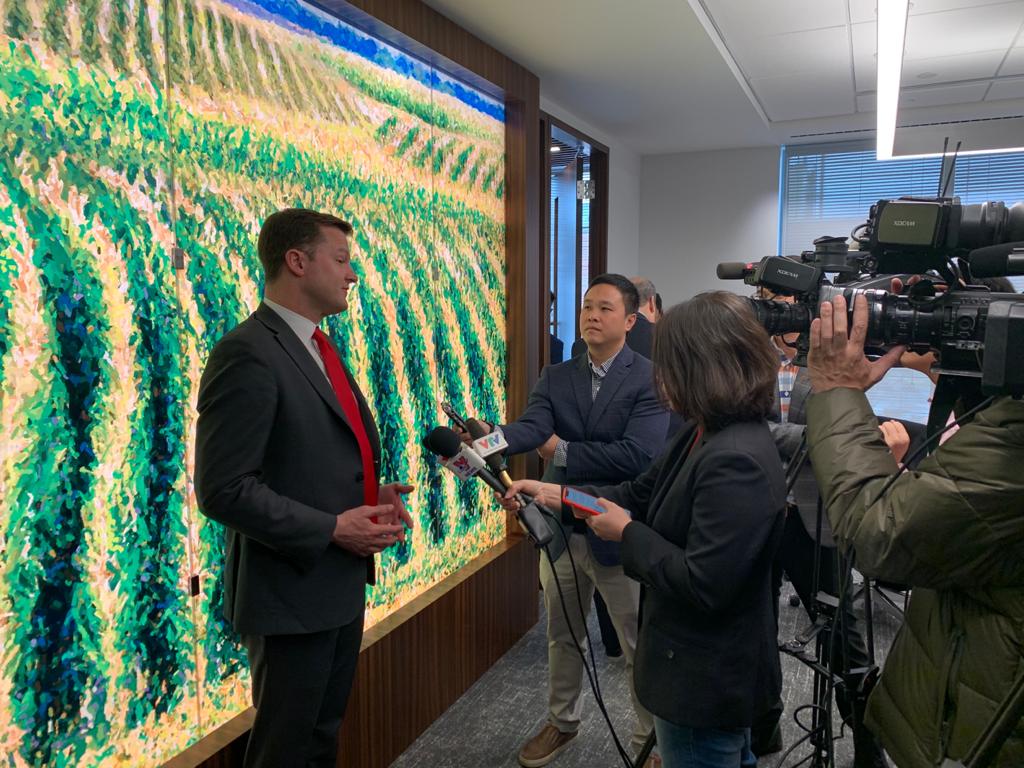Vietnam is one of the fastest growing feed and fuel markets in the world with an expanding middle class that is increasing its demand for meat, milk and eggs. An agribusiness trade mission from Vietnam, led by the vice minister of the Vietnamese Ministry of Agriculture and Rural Development (MARD), met with U.S. agricultural associations at the U.S. Grains Council’s (USGC’s) Washington, D.C., headquarters on Monday to discuss how U.S. farmers and agribusinesses can help meet that demand.
The Vietnamese delegation included 20 companies that trade agricultural goods. The delegation is also traveling to Iowa, Nebraska and California to further discuss opportunities for increasing agricultural trade.
“The businesses represented are seeking more knowledge on quality, food safety and competitiveness from partners in the United States – all in an effort to promote increased agricultural trade,” said Cary Sifferath, USGC senior director of global programs, who participated in the meetings. “While at the Council, the Vietnamese delegation recommended increasing dialogue between government agencies on import and export regulations, increased market access and trade promotion.”
This mission was a follow-up to the U.S.-Vietnam Trade and Investment Framework Agreement (TIFA) talks in October 2019, as part of a series of larger policy initiatives intended to reduce the $50 billion trade deficit the United States had with Vietnam in 2019.
Agricultural trade is a bright spot in the U.S.-Vietnam trading relationship. Vietnam is the sixth largest market for U.S. food and agricultural exports – totaling $4 billion in 2019. Vietnam was the second largest buyer of U.S. dried distiller’s grains with solubles (DDGS) in 2018/2019, setting a new record at nearly 1.3 million metric tons, valued at $278 million.
In Vietnam, the Council concentrates on product performance and formulation seminars, building confidence in utilizing readily available co-products like DDGS. The Council is also working with local feed mills and DDGS importers following the outbreak of the African Swine Fever (ASF) virus to assist farms with switching to poultry, layer or duck farming rather than give up meat production.
“Vietnamese customers realize the feeding value of DDGS, and this growing preference can be directly correlated to robust Council programming in the country,” Sifferath said.
This growing demand has increased interest from U.S. exporters, but even as exports increase, challenges remain. The Council also is working continuously with the Vietnamese Plant Protection Department (PPD) and the U.S. Department of Agriculture’s Animal and Plant Health Inspection Service (APHIS) and Foreign Agricultural Service (FAS) to resolve issues related to fumigation protocols, crop protection regulations and other issues that have inhibited faster growth in U.S. exports to Vietnam.
“While there are still pending trade issues that affect U.S. exports, Vietnam remains a booming market for U.S. agriculture,” Sifferath said. “Continued trade servicing activities, paired with engagement with government and industry organizations, will help Vietnamese government regulators and customers make informed decisions and increase the use of U.S. coarse grains and co-products.”
About The U.S. Grains Council
The U.S. Grains Council develops export markets for U.S. barley, corn, sorghum and related products including distiller’s dried grains with solubles (DDGS) and ethanol. With full-time presence in 28 locations, the Council operates programs in more than 50 countries and the European Union. The Council believes exports are vital to global economic development and to U.S. agriculture’s profitability. Detailed information about the Council and its programs is online at www.grains.org.


